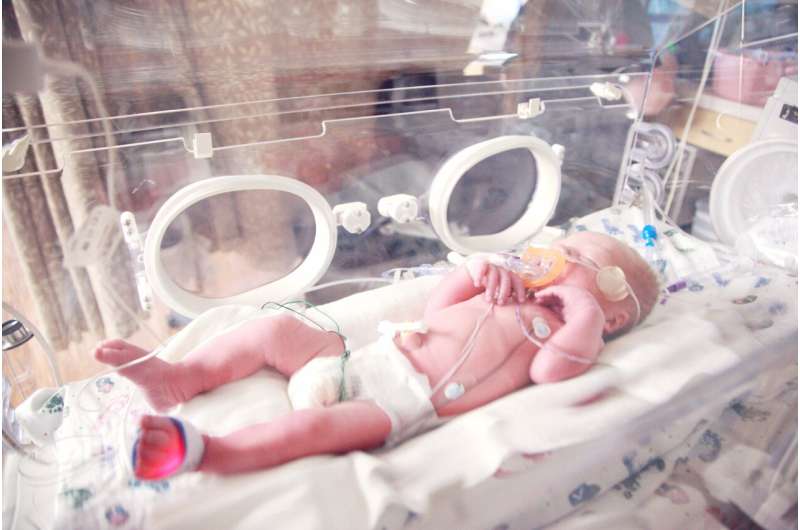This article has been reviewed according to Science X's editorial process and policies. Editors have highlighted the following attributes while ensuring the content's credibility:
fact-checked
trusted source
proofread
Infantile botulism: Look for these signs and symptoms

You have probably heard of food-borne botulism illness in adults, but there is a very rare version of botulism that occurs in infants as well. This illness poses different risks in infants than it does in adults, so it's important to be aware of the causes, signs and symptoms.
Botulism is typically a food-borne illness from a specific kind of bacteria in the soil where your food comes from. When that food is canned or jarred improperly, those bacteria cells can germinate and release the toxin, which causes botulism illness. This toxin is what is used in Botox injections, but when it's ingested through food, it can cause severe paralysis to the point of death.
Botulism in infants is completely different than botulism in adults. Babies who are less than 1 year of age don't have the immune system to fight off botulism bacteria. Therefore, when they ingest the spores of the bacteria themselves, those spores are able to actually germinate inside their stomach and slowly begin to release the toxin into their bodies. In this case, it will lead to the same type of paralysis as in adults, but the initial signs are much different.
Where does the bacteria come from? When a baby comes in to the hospital with botulism, we typically find that there is a soil disruption happening in their area, which can happen in any way. A dry windy day or heavy construction can be a cause of this bacteria spreading.
This is a rare disease, but there have been some unusual cases in Kentucky lately. Some signs you will want to be looking for include:
- Not being able to suck from a bottle or difficulty with feeding.
- Trouble swallowing.
- Pooling of breastmilk or formula in the mouth.
- Drooling of formula or breast milk from the mouth.
- Gurgling or choking sounds when trying to suck and swallow.
- Baby becoming weak and floppy.
If you see these symptoms occur, this is when you will want to reach out to your pediatrician or go to the emergency room.
Fatalities from infantile botulism are very rare because these infants typically are brought to the hospital before the paralysis gets serious. Even if a baby does end up with respiratory paralysis, they can be put on a ventilator and supported until they fully recover. The babies are also treated with botulism immunoglobulin, which are antibodies that bind to the toxin and can help a baby heal.




















